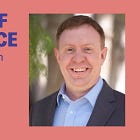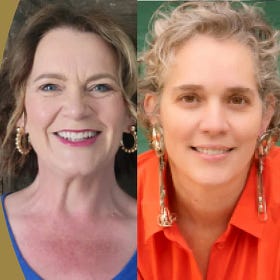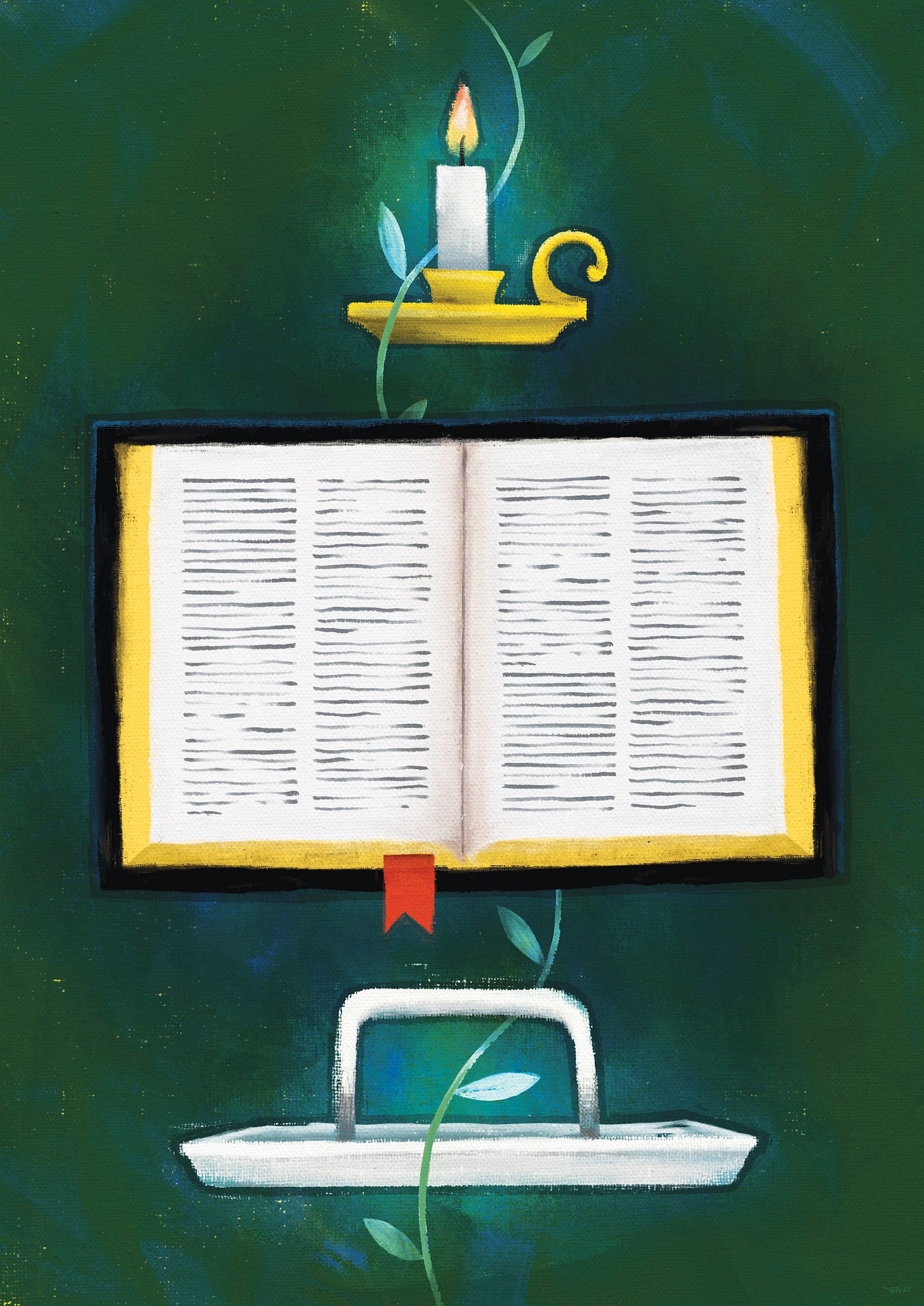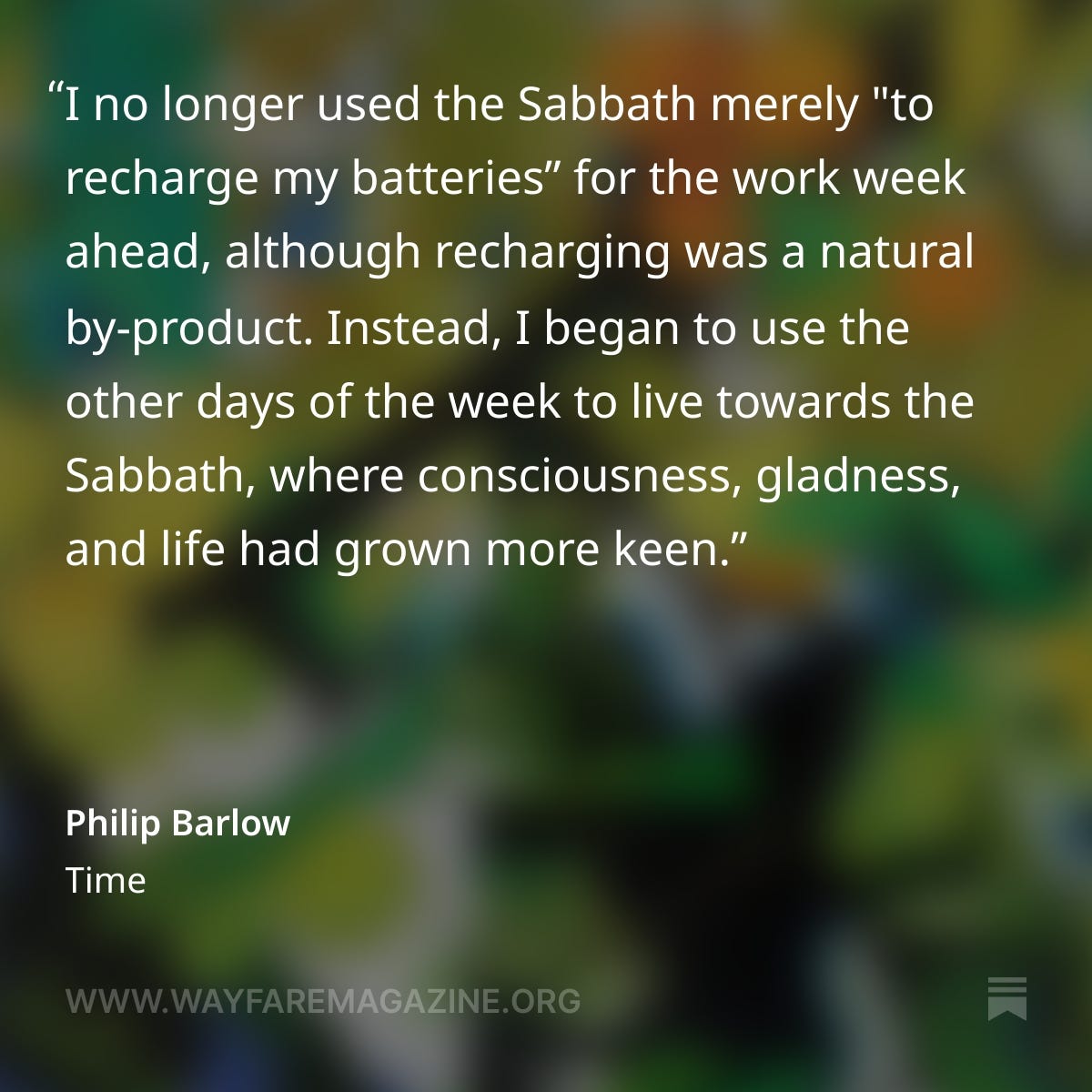How can we be "anxiously engaged in a good cause"?
Faith Matters resources to accompany your Come Follow Me study: June 2-8

I'm okay with the fact that the reality doesn't always meet our ideals… No doubt that the vision that that I laid out in Restoration, all of that is aspirational.
…If I want to get a little bit theological for a moment, this is the way that a lot of theologians talk about the Kingdom of God in the New Testament. Sometimes Jesus says, “Hey, the Kingdom of God is right here! It's with you! You're the Kingdom of God! Huzzah!” Right? And then other times it's like, no, it's on some way distant horizon.
And so there's this sense of, it's both already here and it's not yet arrived. And that's the tension that we have to live in as Christians, and it's the tension we live in as Latter-day Saints, too. We both realize there's something special going on, there's something incredible about our community, there's something really great, but it's also not what it's meant to be yet.
And I think when we lean too much into, “we've arrived,” then that leads to a kind of passivity, “all is well in Zion,” “we don't have to do anything.” That's a danger. But when we lean too much into “this isn't yet what it's supposed to be, this isn't yet what I aspire for it to be,” then that becomes dangerous too, because we're never satisfied, it's never good enough, and we're always going to be disappointed.
…In some ways, you've got to create the church that you want to be a part of, while also participating in a larger Church as well.
—Patrick Mason
“After much tribulation come the blessings.”
Brian McLaren: Life After Doom
Brian McLaren's new book is an empowering call to action and an invitation to do the kind of inner work that makes us brave in the face of real fear and uncertainty. Brian asks, "What if it doesn't turn out? How will we face the future if things get worse instead of better?" He offers gentle encouragement to reach deeper into ourselves and find a stronger, more resilient type of hope: the kind that, as Václav Havel said, “is not the certainty that things will turn out as we wish, [but] is the conviction that some things are worth doing, no matter how they turn out.”
Brian's insights challenged us to rethink our understanding of end-times, to explore what is worth doing no matter what, and to see the concept of chosenness not as a privilege for a select few, but as a call to loving service for all. We think this episode offers real wisdom and a fresh perspective on how we can navigate these challenging times with faith, hope, and love.
I can “bring to pass much righteousness” of my “own free will.”
I believe ‘Mormonism’ affords opportunity…for thoughtful disciples who will not be content with merely repeating some of its truths, but will develop its truths …The Prophet planted the germ-truths of the great dispensation of the fullness of times…The disciples of Mormonism, growing discontented with the necessarily primitive methods which have hitherto prevailed in sustaining the doctrine, will yet take profounder and broader views of the great doctrines committed to the church; and, departing from mere repetition, will cast them in new formulas…until they help to give to the truths received a more forceful expression, and carry it beyond the earlier and cruder stages of its development.
—B.H. Roberts, The Improvement Era, 1906
At Faith Matters, we are inspired by Elder BH Roberts’ admonition to us all to take part in the ongoing Restoration. Here are a few episodes we think really exemplify what it means to be anxiously engaged in a good cause:
McArthur Krishna and Michal Thomas: The Cherished Doctrine of Heavenly Mother
“The Relief Society, the Young Women and the Primary all came because a woman had a good idea, and then she went to the Church and said, "Hey, I got a good idea, I think we should do this." And the Church said, "Hey, that's a good idea." I 100% agree that the prophet and the twelve have stewardship in this. But it doesn't mean that all good ideas only come from that place. And again, this is not an either/or. This is not a challenge to authority. This is not a rabble-rousing. This is saying, I'm contributing. And if I have a good idea that I can contribute, then it behooves me to contribute.”
McArthur Krishna & Anne Pimentel: Changemakers
In this conversation, we explore what it means to be a changemaker in a Church that values both institutional authority and ongoing revelation. We talked about the tension many women are feeling right now, how pain can become a catalyst for meaningful, needed transformation, and what true partnership between men and women might look like in that process.
McArthur and Anne remind us again and again that revelation doesn’t always start at the top—so often, it often rises from the margins, born of questions, connection, and listening with love.
We hope this conversation inspires you to trust your gifts, to share your voice, and to believe, deeply, that your contributions matter.
Lisa Olsen Tait & Scott Hales: Our Beautiful, Messy, Unfolding Story
In this candid discussion, Lisa and Scott share powerful stories of ordinary members navigating pivotal moments. From Black Latter-day Saints who held onto hope during the painful years before 1978 to those who quietly and actively worked for change, these stories offer a vision of discipleship that embraced courage, resilience, creativity, and deep faith—a model that feels especially relevant today.
This conversation was a beautiful reminder that each of us is part of a rich, unfolding history—a history that connects us to generations of Saints who faced their own challenges and whose courage and faithfulness have blessed us today. We hope it inspires you to see your own place in this story.
Is it ok to try to fix the Church?
We can carry the church beyond its “cruder stages of development.” Though it won’t happen all at once, we can be — in the words of one of my favorite LDS thinkers — “faithful provocateurs” who directly or indirectly recast the Church more fully in the image of the God we believe in; one who is no respecter of persons, prejudices, or past; one whose love is unlimited and extends to enfold each of his children.
Janette Ok: Taking a Seat at the Table
This conversation is a rich exploration about why women’s voices are essential in religious settings and how we can step into those opportunities with intention and authenticity. Janette shares her conviction that when women preach, they bring perspectives, depth, and strengths that can mature an entire congregation. And she explains that this work requires discernment. Stepping into leadership—whether you hold an official title or not—means listening for your unique calling, assessing the power you do have, and showing up faithfully, even, and maybe especially, when it feels uncomfortable.
Our favorite part of this interview is that Janette offers some really practical steps for developing your voice and pulling up a seat to the table. This conversation lit us up—not just for the way it can help individuals find their voices but for the powerful reminder that communities grow when men and women lead together.
The Lord forgives me as I repent.
Listen to “Repentance as Transformation,” a conversation between Thomas McConkie and Adam Miller on the Faith Matters podcast.
This is repentance as something like a positive way of life, rather than an occasionally negative thing that I have to do in response to my own failures. This is repentance as a kind of a proactive, positive cultivation of this open heart, that allows me to continually go beyond the limits of my own mind and my own soul. —Adam Miller
And listen to “Stories and Sin: A Conversation with Adam Miller,” which includes a question about how to help our kids develop a healthy relationship with these concepts:
If my experience of guilt fixes my attention even more firmly on myself, then I’m in trouble. If my experience of guilt turns my attention away from me and towards the people who I feel guilty about having hurt, then it’s working in the right way. It’s turning me in the right direction. —Adam Miller
Including Women in Church History
Kate Holbrook: Extraordinary Women in Mormon History
In this wide-ranging conversation with Terryl Givens, Kate highlights the importance of telling the LDS story from the perspective of its women. Does discipleship look different from a woman’s perspective than from a man’s?
LDS church history “needs to be told in a way that integrates what men were doing with what women were doing,” Holbrook says. And not just what Mormon women were doing, but what they were teaching and preaching. Kate recently co-edited an extraordinary volume titled “At the Pulpit: 185 Years of Discourses by Latter-day Saint Women.” “At the Pulpit” features 54 speeches by LDS women over the entire history of the church, complete with important historical context provided by Holbrook and fellow co-editor Jennifer Reeder.
Commandments are a blessing.

We are the bird flying, flapping our wings or soaring in the updrafts. The law is written on our innermost parts, engraved on our hearts (Jer. 31:33). We live the law in response to the crux of all the commandments: love God and love your neighbor (Matt. 22:36–40). As in Jesus’s parable of the vineyard workers, we stop worrying about who has labored longer, and instead rejoice for all who have learned to live in Christ—whether that realization came early or late in the day (Matt. 20:1–16). Works performed in response to grace are an expression of our intimate connection to God and all creation. We’re in partnership with God—in gracing.
—Hannah Packard Crowther, Gracing
Jesus is teaching that the rules point to something, but the rules aren’t the point. In shifting our orientation, the law loses its bite. When the law says, “don’t kill,” Jesus points to “love God and love your neighbor.” When Jesus says, “don’t be angry,” He’s still pointing to “love God and love your neighbor.” Look at what the law is pointing to; that’s what He’s teaching. —Hannah Packard Crowther, Gracing
The Sabbath is the Lord’s day.
Theologian Walter Brueggemann called the practice of sabbath an act of resistance. The word conjures French fighters, stylishly sabotaging Nazi infrastructure while smoking Gauloises. Imagining myself in a beret with red lipstick really helps when I attempt to turn off my phone for a day. It’s certainly a more attractive image than the grey, dull associations most of us carry. Sabbath sounds to us like the shop closing early just when we’ve run out of milk. It sounds like restriction. Which it is. But it is also through restriction, liberation.
For most of the week, my value is in what I produce and what I consume. If I’m not careful my main goal in a day becomes being impressive and competent, subtly signaling my status with the things I buy, say and post.
Sabbath is the opposite. It is a line in the sand. Today I am just a person, and a person is beyond price. Sabbath is about valuing, fighting for and fiercely guarding rest.
I have had to learn to choose rest in a culture that only really recognizes frantic work and exhausted, passive leisure, ideally consumed using the same screens we’ve been working on all day, produced by the same small number of global corporations.
…For Jews and Christians, the sabbath is not designed to serve work, because love, not work, is our ultimate end. … I have come to see sabbath as central for my personal project of connection, with myself, with my family and community and with [God]. It’s a relational reset every week, a bulwark against the instrumentalization of relationships and the commodification of time.
And rest is, fundamentally, about being human. About recognizing our limits when advertising tells us we are limitless. It requires intention, and working out what we do actually find restorative. It is going in the bath with a book for me (but not with an iPad), or gardening, or rollerblading, or puttering around charity shops without my phone. I need to not have access to the news or social media in order to rest.
It might seem counterintuitive to prescribe rest as a medicine for the sin that is often known as sloth, but I think it’s right. Proper rhythms of real rest rather than passive leisure consumption make focus easier when we need to work, make it more likely we will find joy and flow in it when we do.
—Elizabeth Oldfield, “Attending to Life,” from Issue 4 of Wayfare













